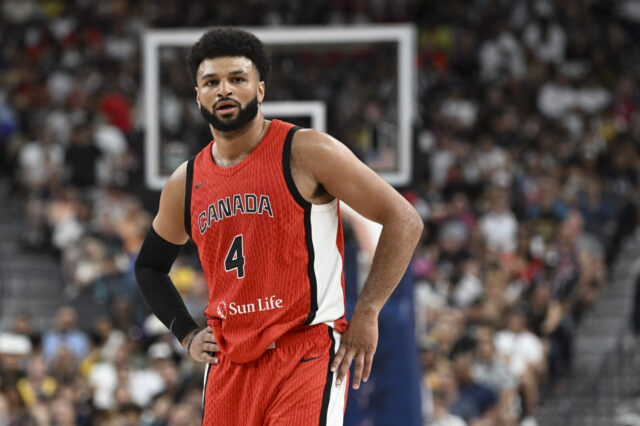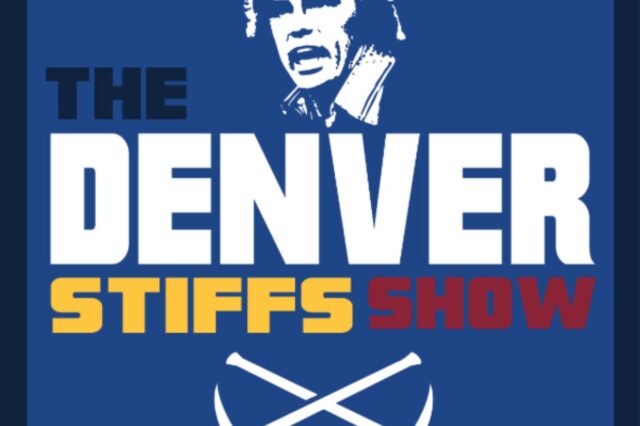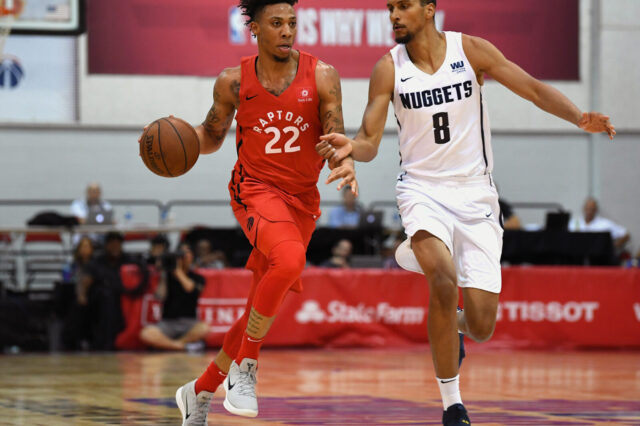This edition will focus less on why certain things happened and simply present the data available. Opening night is a difficult night to gauge for multiple reasons, and while the Denver Nuggets lost a game they should have won against the Utah Jazz, it’s hard to fault most parties for the first regular season game action in six months.
Still, I want to break down and sort five-man lineup combinations. Which lineups were successful? Which ones weren’t? Is there a connection?
Every five-man lineup from last night, sorted by minutes played:
(minimum: two minutes played, non-garbage time)
| Point Guard | Shooting Guard | Small Forward | Power Forward | Center | Minutes Played | Plus/Minus |
|---|---|---|---|---|---|---|
| Murray | Harris | Chandler | Millsap | Jokic | 14 | 0 |
| Barton | Harris | Chandler | Millsap | Jokic | 9 | 1 |
| Mudiay | Barton | Chandler | Plumlee | Jokic | 6 | -6 |
| Mudiay | Barton | Hernangomez | Faried | Jokic | 3 | -2 |
| Mudiay | Harris | Barton | Millsap | Plumlee | 3 | 0 |
| Murray | Harris | Barton | Millsap | Plumlee | 2 | 2 |
| Mudiay | Harris | Barton | Chandler | Plumlee | 2 | -5 |
Five Takeaways
- The first thing I noticed: the starting lineup played a ton of minutes together. As I predicted during the offseason, the starting five would be one of the most relied upon units in the NBA minutes wise, regardless of who won the starting point guard battle. In reality, 14 minutes for the starting unit seems low.
- That’s because the next lineup on the list featured WIll Barton as the de facto point guard. The Nuggets hadn’t used this lineup in preseason, and frankly, it’s a miracle it was a net neutral group. During those nine minutes, there were five turnovers, most of any group. It’s okay for the Nuggets to experiment with going without a point guard, as Barton is definitely a better player and more skilled creator than Jamal Murray, but it’s a questionable decision to try it for the first time on opening night against a top 3 defensive team in the Jazz. I like the idea of the lineup, but in the fourth quarter, Nikola Jokic took one shot and Gary Harris took none. That cannot happen, regardless of who is playing well.
- Jamal Murray was a +9 by himself, but six of those points came in garbage time. Still, he was a +3 in his other 18 minutes and played pretty well in his first minutes after halftime, making two threes, picking up an assist, and being much more aggressive. The problem? He couldn’t stay in front of Ricky Rubio. Rubio had five assists during the third quarter, most of them out of a pick and roll covered by Murray. Michael Malone isn’t going to trust Murray if he can’t defend, and in the Western Conference, there are very few days where the point guard will be incapable of blowing by Murray every single time.
- The Mason Plumlee – Nikola Jokic lineup isn’t a bad one in the right situation, but against Utah’s small ball lineup, it was terrible. The Jazz ran out Donovan Mitchell, Alec Burks, Thabo Sefolosha, Joe Johnson, and Ekpe Udoh to start the quarter while Denver countered with Emmanuel Mudiay, Barton, Chandler, Plumlee, and Jokic. Plumlee wasn’t the problem in this one, as he didn’t play bad at all; however, Denver couldn’t keep up with the fast pace of the small ball Jazz. I almost would have preferred to remove Jokic and insert Juancho Hernangomez for more spacing, speed, and perimeter defense. This was a bad oversight, and it cost the Nuggets a lot of points in a short amount of time.
- There are a lot of negative Mudiay lineups, some that I’m not showing. In the second and fourth quarters, Mudiay started on the floor in a great lineup to complement his skills with Barton, Hernangomez, Faried, and Jokic. He missed all three of his field goal attempts and was a -5 during the second quarter. In the fourth quarter, he ceded touches to Barton but made a negative impact on the defensive end, as he and Barton let Mitchell and Burks bring the Jazz back into the game.
Potential Solutions?
It’s game 1 out of 82 to start the season, so there’s a lot of games to go and a small sample size to begin; however, there are three quick points to address:
- Jokic has to be better. At the beginning of the fourth quarter, he had Joe Johnson covering him, and when he tried to score on Johnson in the post, frankly, he was dominated by the veteran. When Denver goes big against smaller lineups, they need to take advantage inside. They couldn’t get the ball into the paint, and that’s a problem. Let Jokic do what he does, insert Hernangomez over Chandler for spacing and cutting, and try it again.
- Keep Gary Harris involved on the perimeter. Fresh off an extension, Harris scored 11 points in the first half and disappeared in the second half, taking just three shots in the third quarter. There are a number of plays Denver can run to free up Harris for a backdoor cut or an open three, and that went out the window in the fourth quarter. He’s good. Make him do stuff.
- Use Paul Millsap as the bench facilitator. This was Jokic’s role last night, and it’s one of the reasons Denver lost. Millsap’s game centers around facilitating good offense for others and taking advantage of mismatches when he has them. He did well when matched up against Johnson, and his presence defensively may have prevented some of those extra points. The Millsap-Plumlee combination has potential as long as there is enough spacing around it, and Malone must find a way to put Hernangomez on the floor next to that duo. That front court trio will give opposing benches nightmares, not to mention Barton as a guard creator. In many ways, the Jokic-Plumlee lineup needs a good point guard more than the Millsap-Plumlee lineup does, so having the latter duo out there with the bench makes things easier on everyone else.
That wraps up this edition of Stat of the Week, so let me know what I should talk about in the upcoming games. There will be a lot to discuss, especially regarding this new Barton-Harris lineup, and there are many ways I can go about it analytically.
This content is no longer available.


